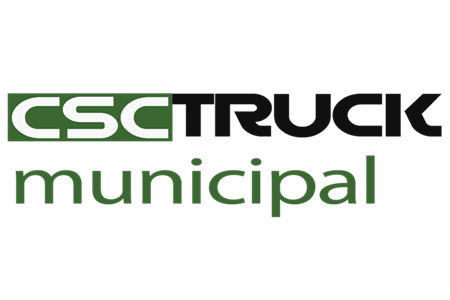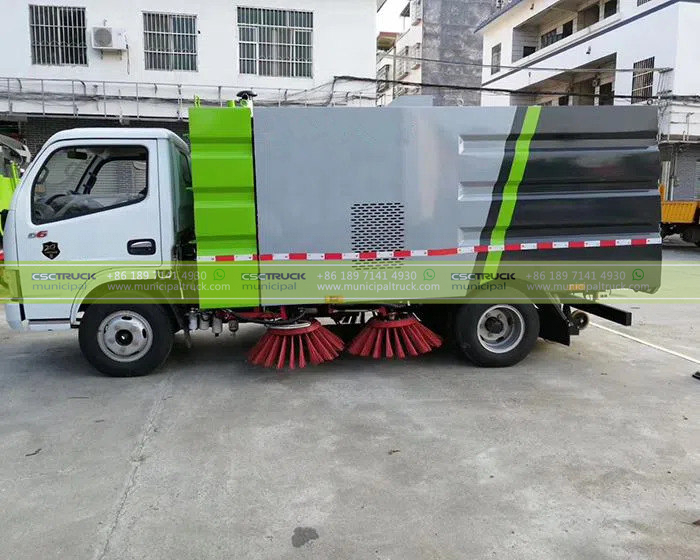Urban environments are a bustling nexus of activity, where the rhythms of daily life unfold on a canvas of asphalt and concrete. Amidst this urban choreography, street sweeper trucks play a crucial yet often unnoticed role in maintaining the cleanliness and aesthetics of our roads. These specialized vehicles silently glide through the labyrinthine streets, ensuring that the debris of civilization is swept away. However, the effectiveness of these machines hinges on a less visible but equally vital choreography – the meticulous maintenance that keeps street sweeper trucks operational and effective.
The Unsung Heroes of Urban Cleanliness
Street sweeper trucks, resembling a hybrid of a utility vehicle and a mechanized broom, are designed to do far more than just collect litter. Their rotating brushes reach deep into the crevices where trash tends to accumulate – from cigarette butts to fallen leaves. In doing so, they not only contribute to the aesthetic appeal of urban areas but also help manage pollution by preventing debris from entering stormwater systems. This, in turn, safeguards the environment by reducing the amount of pollutants that could find their way into water bodies.
Yet, these trucks are often unsung heroes, silently operating in the early hours of the morning or late at night when most residents are asleep. Their effectiveness is a testament to the meticulous maintenance regimes that keep them running smoothly.
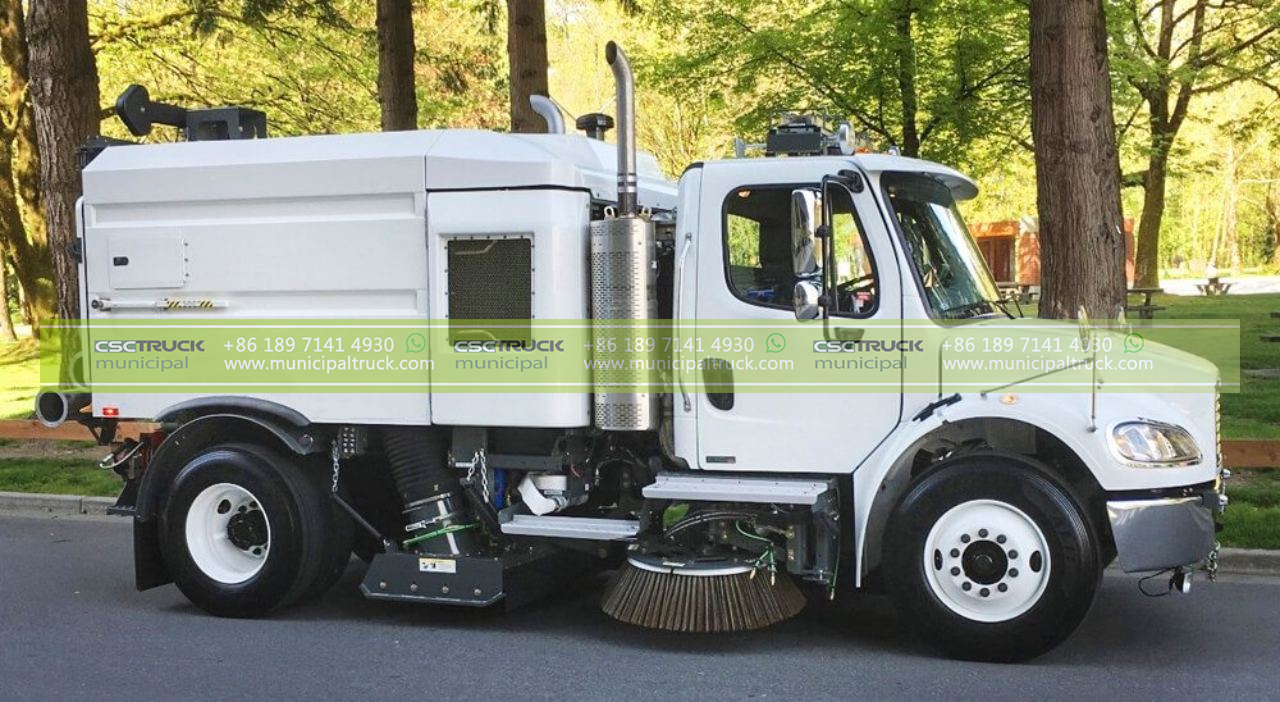
The Crucial Role of Maintenance
Maintenance of street sweeper trucks is more than just mechanical upkeep; it’s the backbone of their performance. Regular maintenance not only extends the lifespan of these vehicles but also ensures that they can function at their optimal capacity.
1. Mechanical Components: The brushes, suction systems, and collection bins of street sweeper trucks are subjected to rigorous use. Regular checks and replacements of these components are necessary to maintain the machine’s effectiveness. Brush bristles wear down, hydraulic systems require fluid checks, and vacuum systems can become clogged – all of which can impact the truck’s efficiency.
2. Engine Health: Just like any other vehicle, the engine of a street sweeper truck needs proper care. Regular oil changes, filter replacements, and overall engine inspections are essential to keep the vehicle running reliably. A malfunctioning engine not only disrupts daily operations but can also lead to increased emissions and fuel consumption.
3. Electrical Systems: Modern street sweeper trucks often feature sophisticated electronic control systems that manage various functions. Ensuring that these systems are in proper working order demands regular diagnostics and maintenance to prevent unexpected breakdowns.
4. Safety Considerations: Safety is paramount when operating any machinery, and street sweeper trucks are no exception. Regular checks of brakes, steering, and lights are critical to guarantee the safety of both the operators and pedestrians sharing the road.
5. Preventive vs. Reactive Maintenance: Street sweeper truck maintenance can be categorized into 2 broad approaches – preventive and reactive. Preventive maintenance involves scheduled check-ups and replacements before components fail, thus avoiding downtime. Reactive maintenance, on the other hand, addresses issues after they arise. While both have their place, a strong emphasis on preventive maintenance minimizes disruptions and enhances the longevity of the vehicles.
The Economics of Efficiency
Effective maintenance practices do more than ensure smooth operations – they also contribute to economic efficiency. Street sweeper trucks are an investment for municipalities and cleaning services, and keeping them well-maintained maximizes the return on that investment.
1. Cost Savings: Regular maintenance prevents small issues from escalating into larger, more expensive problems. A minor malfunction, if left unaddressed, could lead to a complete breakdown, necessitating costly repairs or replacements. By addressing issues early on, municipalities can save money in the long run.
2. Operational Continuity: In urban environments where cleanliness is an ongoing concern, interruptions in street sweeping operations can lead to litter accumulation, reduced aesthetics, and potentially adverse environmental effects. Proper maintenance helps ensure that these vehicles can consistently perform their tasks, maintaining the desired level of cleanliness.
3. Longevity: A well-maintained street sweeper truck has a longer operational lifespan. This extends the period before a new truck needs to be purchased, thus optimizing budget allocation and resource utilization.

Towards a Cleaner Urban Future
As urbanization continues its rapid pace, the importance of street sweeper trucks and their maintenance becomes increasingly evident. A cleaner urban environment isn’t just a matter of aesthetics; it’s about fostering healthier living conditions, preventing pollution, and contributing to the overall quality of life for city residents.
Investing in proper maintenance practices for street sweeper trucks is an investment in the very fabric of our urban spaces. It’s a commitment to the health of our environment, the efficiency of our infrastructure, and the satisfaction of our communities. Just as the unsung heroes of street sweeper trucks glide through the city’s arteries, quietly sweeping away the debris, let us also recognize and appreciate the choreography of maintenance that keeps these vital vehicles running efficiently, and our urban roads clean.
The Evolving Landscape of Maintenance
In the modern age, maintenance has taken on a new dimension with the integration of technology and data-driven approaches. Street sweeper truck maintenance is no exception. The marriage of traditional mechanical know-how with innovative technologies is transforming how these vehicles are cared for, leading to even greater operational efficiency and environmental benefits.
1. Predictive Maintenance: Advances in sensor technology and data analytics have given rise to predictive maintenance strategies. By monitoring various parameters in real-time, such as engine performance, brush wear, and hydraulic pressure, operators and maintenance teams can anticipate potential issues before they escalate. This not only reduces the risk of unexpected breakdowns but also optimizes the timing of maintenance activities.
2. Telematics and Remote Monitoring: Telematics systems allow for remote monitoring of street sweeper trucks. Operators and maintenance teams can track the vehicles’ location, performance metrics, and even receive alerts for maintenance needs. This level of connectivity enhances response times and ensures that maintenance resources are precisely deployed when and where they are needed.
3. Efficiency Enhancements: Technological advancements are not limited to maintenance alerts; they are also being applied to enhance the operational efficiency of street sweeper trucks. Smart routing algorithms, guided by real-time traffic and litter density data, enable these vehicles to navigate the most efficient paths, reducing fuel consumption and wear and tear.
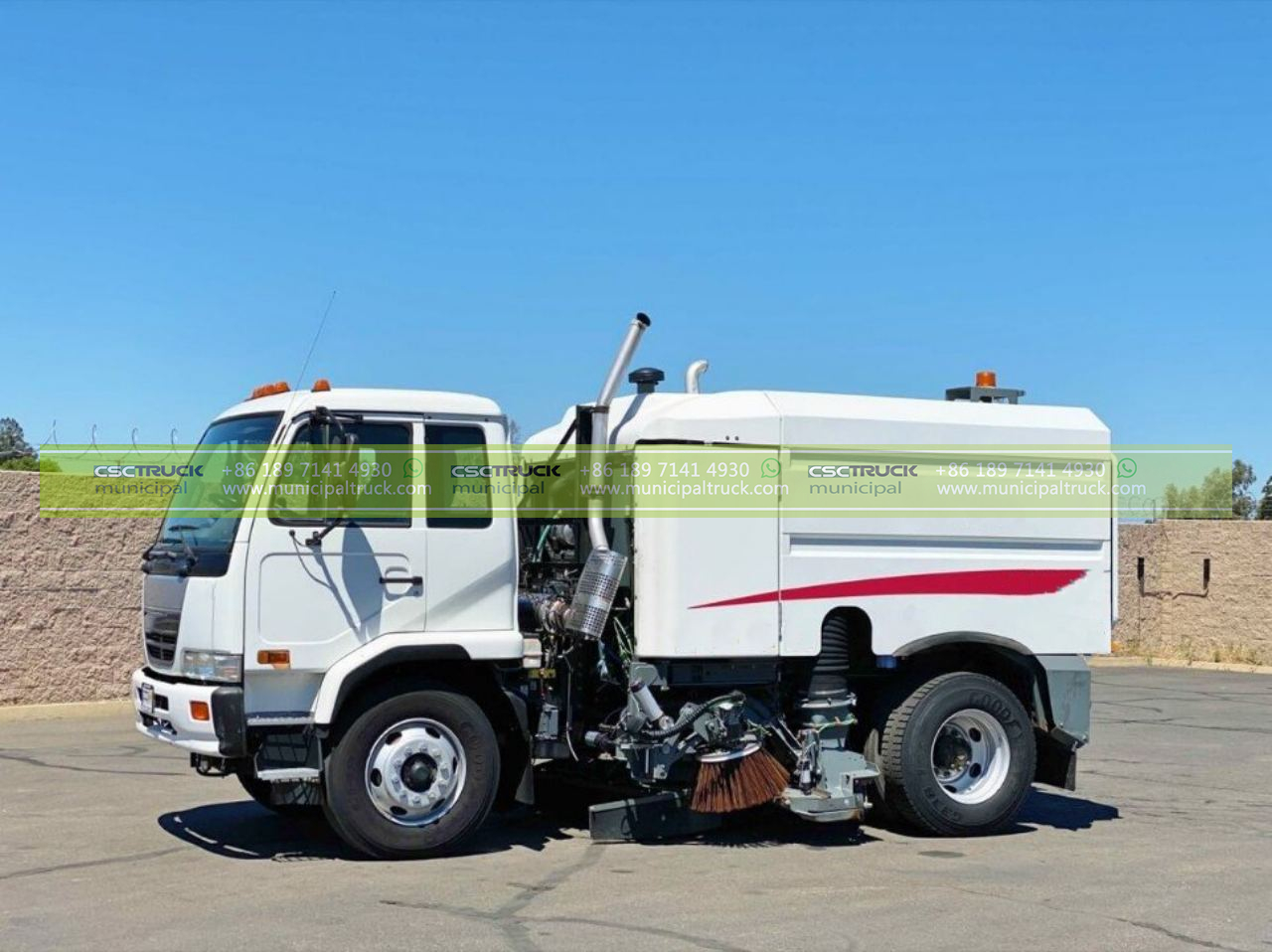
A Shared Responsibility
While maintenance teams, operators, and technology play pivotal roles in keeping street sweeper trucks operational, the responsibility for their effectiveness extends to every member of the community. Littering and improper waste disposal contribute to the accumulation of debris on urban roads. Citizens must recognize that the efforts of these vehicles are only as effective as the cleanliness of the environment they operate in.
Community engagement and awareness campaigns about proper waste disposal play a crucial role in minimizing the workload of street sweeper trucks. When citizens take pride in their surroundings and dispose of litter responsibly, the need for frequent sweeping is reduced, making maintenance efforts more sustainable and cost-effective.
Challenges and Future Prospects
While maintenance and technology have evolved, challenges persist in ensuring the continuous effectiveness of street sweeper trucks. Budgetary constraints, lack of skilled maintenance personnel, and the need to balance operational needs with environmental concerns are all factors that demand thoughtful consideration.
In the future, the integration of renewable energy sources, such as electric or hybrid powertrains, could further enhance the environmental friendliness of street sweeper trucks. This would reduce emissions and noise pollution, aligning with the broader goals of sustainable urban development.
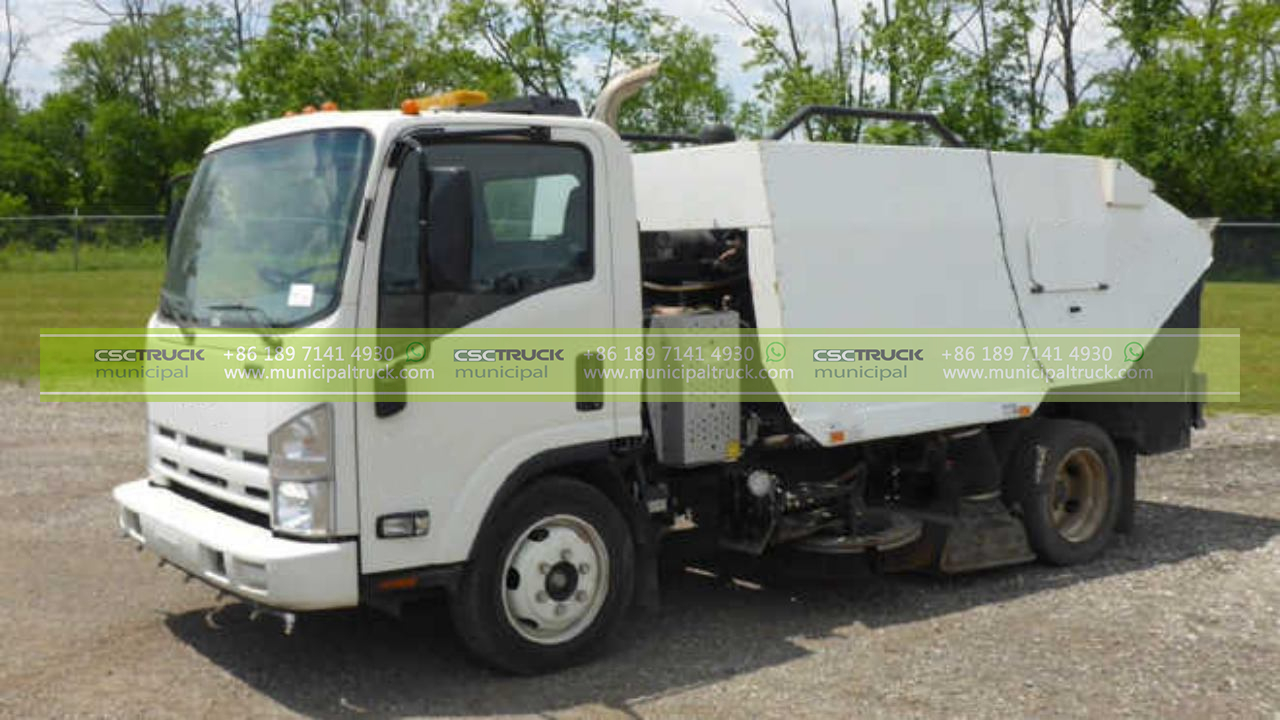
Conclusion
Street sweeper trucks stand as the unsung custodians of our urban landscapes. Their quiet presence ensures that the intricate tapestry of city streets remains free from the debris of daily life. However, the effectiveness of these vehicles is deeply intertwined with the meticulous maintenance practices that often go unnoticed.
As urban centers continue to evolve, the importance of street sweeper truck maintenance becomes increasingly pronounced. Not only does it ensure operational efficiency and extend the lifespan of these vehicles, but it also contributes to economic savings and a healthier environment. The fusion of traditional maintenance practices with innovative technology is shaping a future where street sweeper trucks operate at peak performance, optimizing their impact on the urban ecosystem.
To fully embrace this vision, it is imperative that communities recognize the shared responsibility in keeping their environment clean. By fostering a culture of proper waste disposal and mindful consumption, citizens can reduce the workload of street sweeper trucks, making their maintenance efforts all the more effective.
In the grand symphony of urban life, street sweeper trucks are the quiet notes that compose a harmonious cityscape. They sweep away the residue of our activities, leaving behind a clean canvas for the next day. Let us remember that behind these quiet but crucial performers lies a choreography of maintenance that deserves our attention, appreciation, and support.
Contact us for this municipal truck or similar trucks: [email protected] Call us or What's APP us: +86 189 4292 3930
